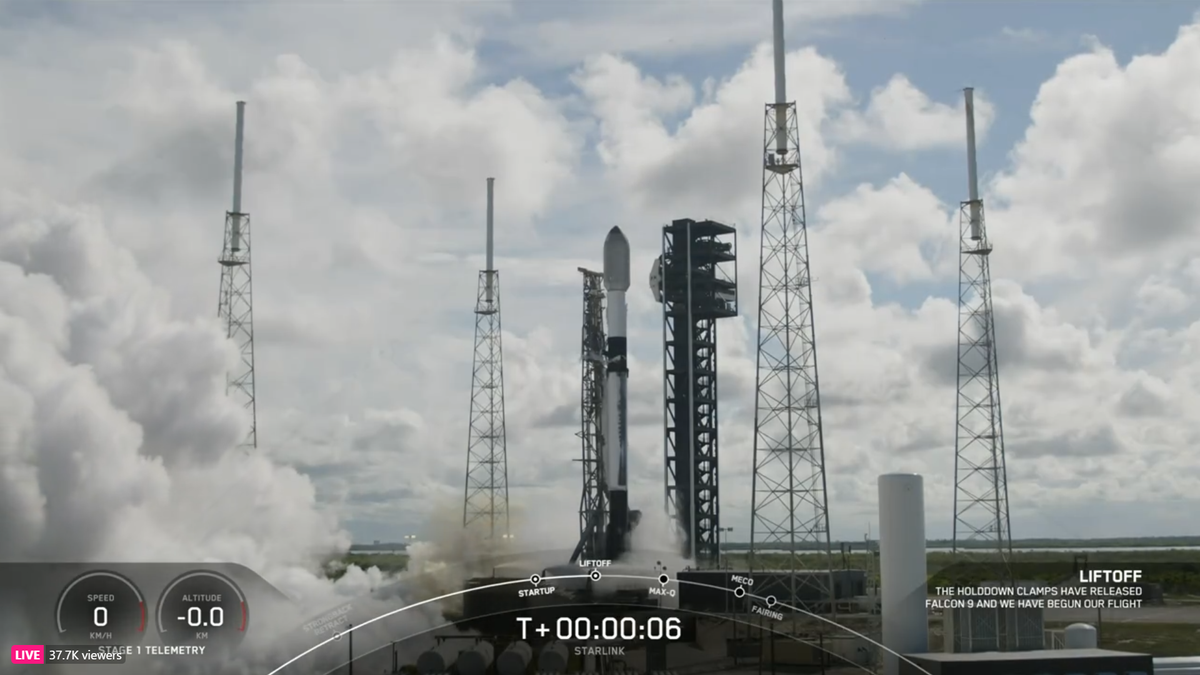A SpaceX rocket suffered a last-second abort during the attempted launch of 22 Starlink internet satellites from Florida on Friday afternoon (June 14).
The SpaceX booster, a workhorse Falcon 9 rocket that has flown 15 times before, aborted its liftoff while igniting its nine first-stage engines at 5:07 p.m. EDT (2107 GMT) atop the Space Launch Complex 40 pad of Cape Canaveral Space Force Station.
“Abort, we have an abort,” a SpaceX launch commentator said during the company’s livestream on X (formerly Twitter).
ABORT! @SpaceX aborts launch of 22 Starlink satellites at the last second at Florida’s Cape Canaveral Space Force Station. pic.twitter.com/r7ebUJdw1FJune 14, 2024
It is unclear what caused the rare abort for a SpaceX Falcon 9 rocket, or when the company will attempt to launch its Starlink satellite mission again. Today’s launch attempt had a four-hour window and a similar window is available on Saturday (June 15) starting at 4:07 p.m. EDT (2007 GMT).
“Standing down from today’s Falcon 9 launch. A new target launch date will be shared once available,” SpaceX wrote in a mission update on X.
Whether or not SpaceX attempts a Saturday launch will likely depend on the the nature of the glitch that caused Friday’s abort and how fast it can be addressed. Bad weather delayed two previous attempts to launch the Starlink flight, first on June 12 and then again on June 13.
Related: How to track SpaceX’s Starlink satellites in the night sky
The upcoming launch will mark SpaceX’s 60th rocket launch of 2024 and the 16th flight for this particular Falcon 9 first-stage. The booster “previously launched SES-22, ispace’s HAKUTO-R MISSION 1, Amazonas-6, CRS-27, Bandwagon-1, and 10 Starlink missions,” SpaceX wrote in a mission update. The Falcon 9 stage is expected to land on a SpaceX drone ship at sea of the Florida coast for later reuse.
Ten of the booster’s previous missions carried batches of Starlink satellites into orbit as part of SpaceX’s project to build a megaconstellation network that can deliver high-speed internet access anywhere on Earth. That constellation currently consists of nearly 6,100 operational Starlink satellites, according to satellite trackers.
Of its nearly 60 missions so far this year, 45 of the SpaceX launches were dedicated to Starlink satellite launches. The company has averaged a rocket launch every 2.7 days so far this year.





















Discussion about this post